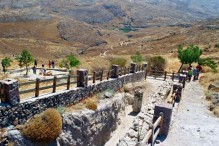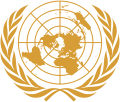 During the 38th session of UNESCO’s General Conference (Nov 3-18), the 195 Member States unanimously agreed to ratify the creation of the ‘UNESCO Global Geoparks’.
During the 38th session of UNESCO’s General Conference (Nov 3-18), the 195 Member States unanimously agreed to ratify the creation of the ‘UNESCO Global Geoparks’.
This new branding formalises a relationship with Geoparks and expresses governmental recognition of the importance of managing outstanding geological sites and landscapes in a holistic manner, promoting the conservation of the planet’s geological heritage, and encouraging sustainable research and development by communities concerned.
Aegean University professor and director of Lesvos Petrified Forest Museum, Nikos Zouros, who represented Greece in the Sciences Committee, noted that Greece already has five areas designated in the ‘World Geoparks of Unesco’.
In a total of 120 geoparks listed from 33 countries, the five Greek areas participating in the new program are the island of Lesvos, the areas of Psiloritis and of Sitia (in Crete), the national forest of Vikos-Aoos (in the Epirus region) and the national park of Chelmos-Vouraikos (in the northern Peloponnese).
While a UNESCO Global Geopark must demonstrate geological heritage of international significance, the purpose of a UNESCO Global Geopark is to explore, develop and celebrate the links between that geological heritage and all other aspects of the area’s natural, cultural and intangible heritages.
In this context, the organisation is striving to raise awareness of geo-diversity, as well as promoting the best practices for protection, education and tourism.
Together with World Heritage sites and Biosphere Reserves, UNESCO Global Geoparks form a complete range of sustainable development tools and make an invaluable contribution to the realisation of the 2030 Sustainable Development Goals by combining global and local perspectives.

